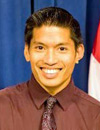Person-centered practices require system capacity to respond effectively to the communication needs of diverse populations. Persons with limited English proficiency, those who have low literacy skills or are not literate either in English or their language of origin, persons with disabilities, those who struggle with health and mental health literacy, and persons who are deaf or hard of hearing all have unique communication needs in our health care and human services systems. The Georgetown University National Center for Cultural Competence puts forth a model for linguistic competence that addresses the interests and needs of these diverse populations within the contexts of the broad array of health and human services systems in the U.S. This webinar will: (a) take an in depth look at linguistic competence; (b) describe its foundational policies, structures, and practices with an emphasis on health care, mental health care, and disability and aging services; (c) offer the perspectives of persons with lived experience and the organizations that provide linguistically competent care, services, and supports; and (d) delineate the inseparable relationship between linguistic competence and person-centered practice. Participants will:
1. Differentiate linguistic competence from language access and implementation.
2. Cite legal mandates, requirements, and standards for language access and implementation.
3. Examine these concepts and mandates within the context of their respective roles and responsibilities.

Tawara Goode is the Director of the Georgetown University Center for Excellence in Developmental Disabilities. She is also the Director of the National Center for Cultural Competence with a mission to increase the capacity of health care and mental health care programs to design, implement, and evaluate culturally and linguistically competent service delivery systems to address growing diversity, persistent disparities, and to promote health and mental health equity.

Mathew McCullough is a Filipino American with developmental disabilities, he is currently the Director for the District of Columbia Office of Disability Rights, the Americans with Disabilities Act compliance office for the District Government. Mr. McCollough is recognized for his communications and training expertise in education, health care, diversity and sensitivity, cultural competency, and disability issues.

Octavio N. Martinez, Jr. MD, MPH, MBA, FAPA is executive director of the Hogg Foundation for Mental Health and Senior Associate Vice-President within the Division of Diversity and Community Engagement at The University of Texas at Austin. Additionally, he is a Professor of Psychiatry at the Dell Medical School and Clinical Professor at the Steve Hicks School of Social Work.

Dr. Yanira Cruz is the President and CEO of the National Hispanic Council on Aging. She focuses on providing the Latino perspective on public health, older adult and caregiver issues to increase policy-maker and public understanding of the needs impacting vulnerable sectors of our society and to encourage the adoption of programs and policies that equitably serve everyone.
This webinar is the third in a four-part series that explores cultural and linguistic competence as it relates to person-centered thinking, planning, and practice. The series is presented by the Georgetown University National Center for Cultural Competence and the National Center on Advancing Person-Centered Practices and Systems (NCAPPS), an initiative from the Administration for Community Living and the Centers for Medicare & Medicaid Services which help States, Tribes, and Territories to implement person-centered practices. NCAPPS webinars are open to the public, and are geared toward human services administrators, providers, and people who use long-term services and supports. All NCAPPS webinars will be recorded and archived at https://ncapps.acl.gov.
Resources: